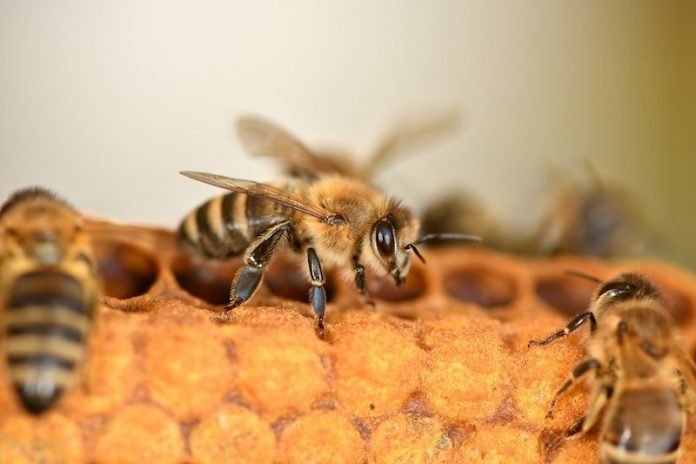
In a new study, researchers analyzed the venom from 312 honeybees and bumblebees in Perth Western Australia, Ireland, and England.
They tested the effect of the venom on the clinical subtypes of breast cancer, including triple-negative breast cancer, which has limited treatment options.
They found that honeybee venom rapidly destroyed triple-negative breast cancer and HER2-enriched breast cancer cells.
The research was conducted by a team at The University of Western Australia and elsewhere.
In the study, the team wanted to test the anti-cancer properties of honeybee venom, and a component compound, melittin, on different types of breast cancer cells.
They tested honeybee venom on normal breast cells, and cells from the clinical subtypes of breast cancer: hormone receptor-positive, HER2-enriched, and triple-negative breast cancer.
The researchers tested a very small, positively charged peptide in honeybee venom called melittin, which they could reproduce synthetically, and found that the synthetic product mirrored the majority of the anti-cancer effects of honeybee venom.
Both honeybee venom and melittin strongly, selectively, and rapidly reduced the viability of triple-negative breast cancer and HER2-enriched breast cancer cells.
The venom was extremely potent. A specific concentration of honeybee venom can induce 100% cancer cell death while having minimal effects on normal cells.
The researchers found that melittin can completely destroy cancer cell membranes within 60 minutes.
Melittin in honeybee venom also had another remarkable effect; within 20 minutes, melittin was able to substantially reduce the chemical messages of cancer cells that are essential to cancer cell growth and cell division.
The team says melittin modulated the signaling in breast cancer cells by suppressing the activation of the receptor that is commonly overexpressed in triple-negative breast cancer, and it suppressed the activation of HER2 which is over-expressed in HER2-enriched breast cancer.
The team also tested to see if melittin could be used with existing chemotherapy drugs as it forms pores, or holes, in breast cancer cell membranes, potentially enabling the entry of other treatments into the cancer cell to enhance cell death.
They found that melittin can be used with small molecules or chemotherapies, such as docetaxel, to treat highly-aggressive types of breast cancer.
In the future, studies will be required to formally assess the optimum method of delivery of melittin, as well as toxicities and maximum tolerated doses.
One author of the study is Dr. Ciara Duffy from the Harry Perkins Institute of Medical Research.
The study is published in npj Precision Oncology.
Copyright © 2020 Knowridge Science Report. All rights reserved.



